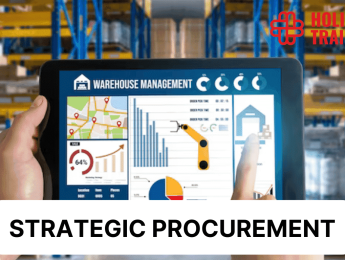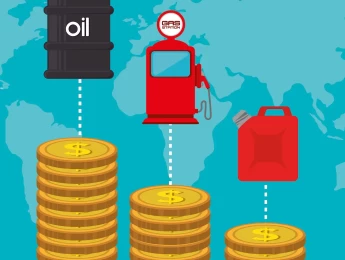- Table of Contents
- Introduction
- Why Leadership Matters More in a Crisis
- What Happens When Leadership Fails in Crisis
- The Evolving Nature of Crisis Leadership
- Top 10 Critical Leadership Skills in a Time of Crisis
- 1. Emotional Intelligence (EQ)
- 2. Clear Communication
- 3. Decisiveness
- 4. Adaptability
- 5. Empathy
- 6. Strategic Thinking
- 7. Resilience
- 8. Ethical Judgment
- 9. Collaboration and Delegation
- 10. Continuous Learning
- Skills Comparison Table
- Conclusion
Introduction
A crisis can strike in many forms - economic downturns, global pandemics, environmental disasters, political conflicts, or organizational breakdowns. Regardless of its nature, a crisis disrupts normal functioning, creates uncertainty, and demands immediate, strategic, and human-centered responses. It is in these moments of turbulence that leadership is truly tested. The ability to remain composed, make critical decisions, and guide others through ambiguity separates effective leaders from mere managers.
While managers might focus on maintaining order, true leaders inspire resilience, foster trust, and provide clarity. They don't simply react; they anticipate, communicate, and navigate through the storm. In times of crisis, people look for leaders who are calm under pressure, transparent in communication, and decisive when it matters most.
In this article, we will explore the increasing importance of leadership during crises, what happens when leadership fails, and how leadership expectations have evolved. Most importantly, we will dive deep into the top 10 critical leadership skills needed in a time of crisis - from emotional intelligence and communication to adaptability and ethical decision-making.
Why Leadership Matters More in a Crisis
During a crisis, leadership becomes the anchor that prevents organizations and communities from drifting into chaos. Leaders play a vital role in stabilizing teams, setting the tone for communication, and providing direction when predictability disappears. Their presence and behavior directly affect the morale, motivation, and mental well-being of employees and stakeholders.
Studies show that strong leadership in times of crisis leads to better decision-making, quicker recovery, and greater team cohesion. According to a 2021 McKinsey & Company report, organizations with proactive and transparent leaders were 2.5 times more likely to outperform their peers during the COVID-19 pandemic.
Similarly, a Harvard Business Review study emphasized that leaders who maintained open lines of communication and showed empathy during a crisis saw a 47% increase in employee engagement and trust.
These statistics underscore the importance of leadership that is not only strategic but also deeply human. In short, the presence of skilled leadership in crisis can mean the difference between disintegration and resilience.
What Happens When Leadership Fails in Crisis
When leadership falls short during a crisis, the consequences can be swift and severe. Poor leadership may result in misinformation, loss of trust, decreased morale, and chaotic decision-making. Teams without clear direction often become disengaged or anxious, leading to lower productivity and, in some cases, full organizational collapse.
For instance, during the early stages of the COVID-19 pandemic, companies with indecisive or opaque leadership struggled to implement safety protocols, suffered reputational damage, and lost significant market share. Leadership failure can create a domino effect that affects not just operations, but also brand credibility and stakeholder confidence.
The Evolving Nature of Crisis Leadership
Leadership in the 21st century has changed significantly. Gone are the days when leaders could rely solely on authority and hierarchy to get things done. The modern crisis demands a more adaptive, empathetic, and transparent approach to leadership. Stakeholders expect honesty, teams crave support, and communities look for stability and vision.
Today’s leaders must navigate not just economic concerns but social, emotional, and environmental complexities. This shift has given rise to new leadership traits: agility to pivot quickly, emotional intelligence to understand and connect with others, and clarity to deliver information transparently and consistently.
The traditional command-and-control leadership model is being replaced with a collaborative, emotionally intelligent style that prioritizes listening, inclusivity, and resilience. Leaders are now seen as stewards of not just financial outcomes but also of culture, ethics, and sustainability.
Top 10 Critical Leadership Skills in a Time of Crisis
The following ten leadership skills are not just desirable in times of crisis—they are essential. Each one addresses a different facet of the challenges leaders face during uncertain, high-pressure situations. Let’s explore each skill in-depth, highlighting practical tips and explaining why it is crucial during a crisis:
1. Emotional Intelligence (EQ)
Emotional intelligence is the capacity to understand and regulate your own emotions while also recognizing and influencing the emotions of others. During a crisis, team members often experience anxiety, fear, or confusion. A leader with high EQ can identify these emotional cues, show empathy, and offer support that resonates with the emotional climate of the team.
Tips:
- Practice active listening without interruption.
- Use phrases that validate others' feelings (e.g., “I understand this is difficult for you.”)
- Manage your stress responses through mindfulness or breathing techniques.
EQ fosters psychological safety, builds trust, and ensures teams remain emotionally resilient under pressure.
2. Clear Communication
Clarity, consistency, and honesty are critical when navigating a crisis. People need frequent, transparent updates to feel secure and informed. Miscommunication can quickly spiral into mistrust or chaos.
Tips:
- Use simple language; avoid jargon.
- Repeat key messages in different formats (emails, meetings, visual dashboards).
- Be honest even when the news is difficult.
Clear communication aligns team efforts, calms uncertainty, and sustains morale.
3. Decisiveness
Crises demand rapid responses. Indecision or delay can worsen a situation or create confusion. Decisiveness doesn’t mean being impulsive; it means having the confidence to act on available data.
Tips:
- Establish a decision-making framework (e.g., best-case/worst-case analysis).
- Make decisions transparent and explain the rationale.
- Accept that not every decision will be perfect, but inaction is riskier.
Confident decision-making provides direction and helps teams act with purpose.
4. Adaptability
The ability to pivot in the face of change is a survival skill during crisis. Rigid plans often fail when circumstances shift unexpectedly.
Tips:
- Be open to revising strategies frequently.
- Encourage innovation and creative problem-solving among team members.
- Stay informed and adjust based on new information
Adaptable leaders keep their organizations agile and responsive to unpredictable scenarios.
5. Empathy
Understanding others’ perspectives and struggles enables leaders to lead with compassion and fairness. This emotional connection boosts morale and team cohesion.
Tips:
- Check in regularly with team members on a personal level.
- Offer flexible working arrangements if possible.
- Recognize and celebrate small wins and effort.
Empathetic leadership creates loyalty, increases engagement, and promotes a culture of care.
6. Strategic Thinking
Beyond immediate crisis response, leaders must also consider long-term implications. Strategic thinking helps prioritize actions that support both short-term recovery and long-term goals.
Tips:
- Define clear priorities based on impact and urgency.
- Use scenario planning to anticipate future developments.
- Align crisis responses with the organization’s mission and values.
Strategic thinking ensures actions today lay the groundwork for a resilient future.
7. Resilience
Resilience refers to a leader’s ability to remain strong, composed, and focused despite adversity. It also involves bouncing back from failures and setbacks.
Tips:
- Develop a personal stress-management routine (exercise, rest, hobbies).
- Encourage open discussions about setbacks and lessons learned.
- Model optimism and calmness to reassure your team.
Resilient leaders inspire perseverance and help their teams stay motivated under strain.
8. Ethical Judgment
Crises often present morally ambiguous situations. Ethical leaders prioritize fairness, transparency, and integrity even under pressure.
Tips:
- Establish a clear code of conduct or guiding principles.
- Weigh decisions through an ethical lens (who is impacted, what values are at stake?).
- Be accountable and admit mistakes when necessary.
Ethical leadership fosters trust and protects reputation in critical times.
9. Collaboration and Delegation
No leader can tackle a crisis alone. Effective leaders build teams that contribute ideas and take ownership of tasks.
Tips:
- Empower team leads to make localized decisions.
- Encourage diverse perspectives to enhance problem-solving.
- Regularly acknowledge team efforts and celebrate contributions.
Collaboration speeds up innovation and prevents burnout by distributing the workload.
10. Continuous Learning
A growth mindset enables leaders to learn from each crisis, refine their approach, and improve future responses.
Tips:
- Conduct post-crisis reviews to identify lessons.
- Encourage professional development and training.
- Stay curious and open to new technologies and methods.
Continuous learning transforms setbacks into stepping stones for future leadership success.
These ten skills are not stand-alone abilities but interconnected competencies that reinforce one another. The more a leader invests in developing them, the better equipped they become to guide others through crisis with strength, vision, and humanity.
Skills Comparison Table
Skill | Description | Why It Matters in Crisis |
Emotional Intelligence | Manages emotions, builds empathy | Supports mental well-being and connection |
Clear Communication | Delivers consistent, transparent messaging | Maintains trust and alignment |
Decisiveness | Makes timely, confident decisions | Prevents paralysis and confusion |
Adaptability | Adjusts quickly to change | Keeps teams agile and forward-moving |
Empathy | Understands and supports emotional states | Fosters team cohesion and loyalty |
Strategic Thinking | Plans beyond the moment | Balances urgency with vision |
Resilience | Bounces back from setbacks | Promotes long-term strength |
Ethical Judgment | Acts with integrity and fairness | Builds lasting trust and accountability |
Collaboration | Engages teams and delegates wisely | Enhances efficiency and unity |
Continuous Learning | Grows from every experience | Encourages innovation and evolution |
Conclusion
In times of crisis, leadership is not just a job title—it's a lifeline. The ability to inspire calm, provide direction, and respond with empathy can turn potential disasters into stories of resilience and renewal. As we've explored, the top 10 leadership skills in crisis span emotional, strategic, and ethical domains, each playing a vital role in shaping outcomes.
Whether you're an executive, team lead, entrepreneur, or aspiring leader, cultivating these skills is no longer optional. In an era marked by uncertainty and complexity, your leadership capacity will define not just your success, but the well-being of those you lead.
Ready to lead with strength and clarity? Enroll in our expert-led leadership development courses to master these essential skills. Stay ahead of the curve by subscribing to our newsletter for more insights, case studies, and leadership tools designed for the modern world.
Your next challenge might be around the corner—make sure you're ready for it.


























